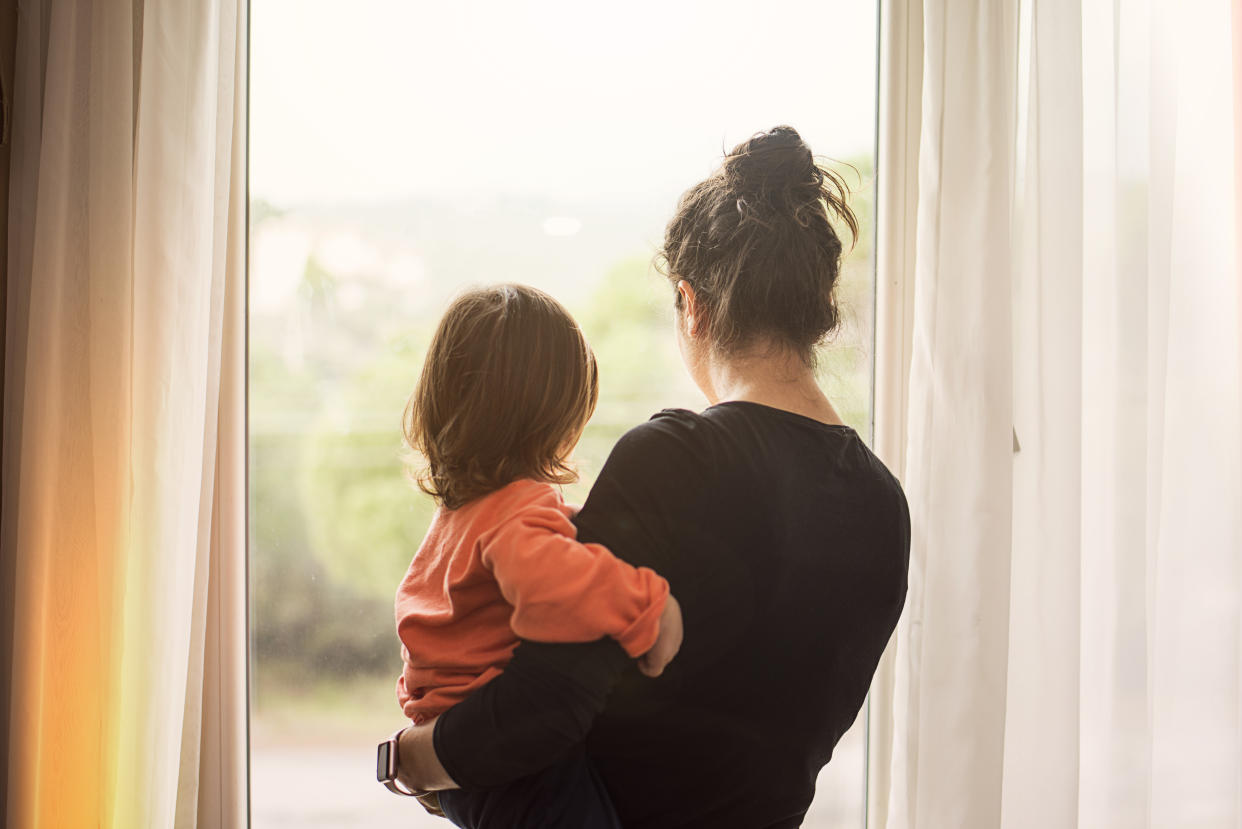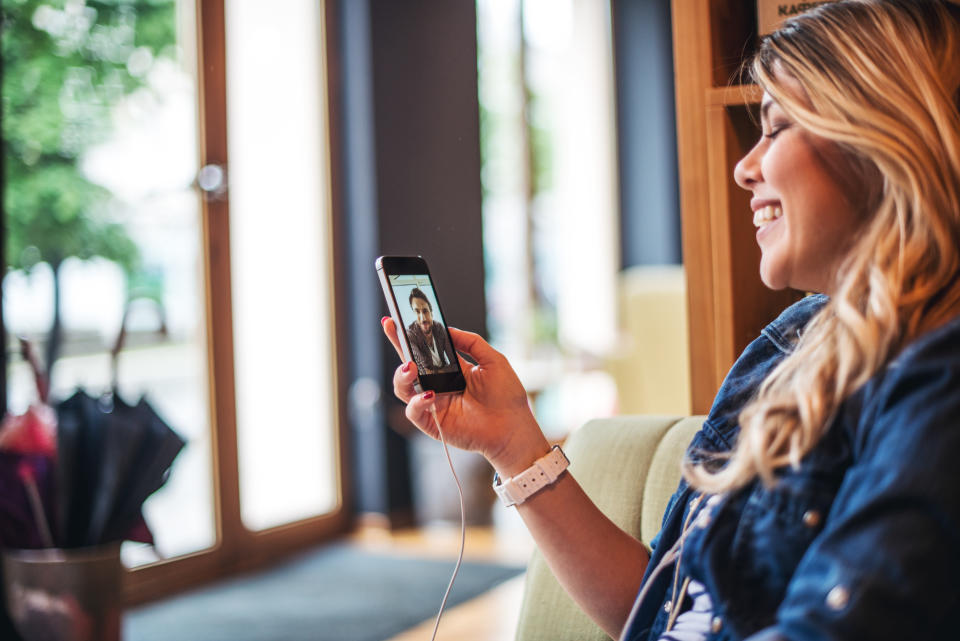'Worst is yet to come': Psychologist stresses importance of managing mental health

As the number of coronavirus cases rise across Australia, and harsh lockdowns are enforced across the country, the level of anxiety within the community is increasing.
Psychologist Dr Amantha Imber says the the changing times are having a big impact on people's mental health, but warns “the worst is yet to come”.
“Right now, social isolation is a novelty, but once the reality sets in - that this is how life is going to be for the foreseeable future, mental health is going to become a huge issue,” Dr Imber tells Yahoo Lifestyle.
“During the last few weeks, it’s been hard to do anything other than worry. Worry about ourselves, our family and friends, our work, and the world. And worrying, of course, makes us stressed and anxious.”
Looking at the psychological effects of isolation, Dr Imber, who is also the founder of behavioural science consultancy Inventium, says people might find themselves doing strange things. Think pretend impulse buying or actual stockpiling.
“[People do this to] give themselves more of a sense of control, when everything around them seems out of control,” she tells us.
“Be mindful of your motivation for doing things - some things make good logical sense, but if you are doing things out of a need to feel an artificial sense of control, pause and try to do something more constructive.”
Maintaining your mental health during social isolation
The challenges associated with social distancing and isolation, including separation from loved ones, loss of freedom and reduced income, are leading some people to experience feelings of anxiety, boredom, frustration and fear.
Thankfully, the Australian Psychological Society has shared guidelines to help manage stress and mental health during this time of isolation.

Stay connected: Positive social connections are essential for our mental health and can help us cope in times of stress. In the current crisis, we are being asked to distance ourselves from others so it is important that we maintain our social networks using available methods of communication. This can be as simple as phoning a friend to share your experience, using videoconferencing technology to check in with a family member, or spending quality time with the people you live with.
Avoid difficult situations: At times, people will be required to self-isolate with others in their household. While this will provide opportunities for social connections, living with someone 24/7 with little or no time away from each other may give rise to arguments and/or tension.
There are a number of things you can do to limit conflict with those you are isolated with, including:
creating a roster to help you distribute chores equally and fairly
identifying and taking part in activities you like doing together such as movies, board games, jigsaws, gardening
sharing positive emotions and experiences, rather than anger, frustration and disappointment
communicating about your worries and concerns, and seeking support from one another
maintaining your sense of fun and positive humour
remaining respectful of each other in times of conflict – walk away and take time to calm yourselves, returning to the discussion later and repairing any hurt caused.

How to best structure your day to keep your mental health in check
While in isolation it is beneficial to plan out your days to restore a sense of purpose and normality to your daily life, APS recommends.
Schedule tasks such as cooking and laundry, as well as activities you enjoy to help you stick to your routine.
Structuring activities around mealtimes and bedtime can also help you keep to your schedule while ensuring you eat regularly and get enough sleep.
Given the current need to practise social distancing and isolation, many people are also being encouraged to work from home where possible.
Working from home can bring a whole new set of challenges and the need to provide structure to your day is even more important.

Tips to help you have a sense of normality and work effectively from home:
Change out of your pyjamas each morning – While you don’t have to dress as formally as you might when going into the office, getting out of your pyjamas can help you get in the right headspace to start your day.
Set up a dedicated workspace – Choose a space away from noise and with adequate lighting to set up your work desk. If possible, use an adjustable desk chair so you can work comfortably. Visit Worksafe Victoria for tips on setting up a safe workspace (bit.ly/2Wr2vjL)
Set a strict schedule – It can be hard to switch-off from work, so it is important to clearly define your working hours, ensuring you have regular breaks. Disconnect from all work-related accounts (e.g., remote desktops, email) at the end of your working day to help maintain a clear boundary between your work and home life.
Limit distractions – Being at home can mean you can be easily distracted by other people or tasks (e.g., household chores). Schedule set times where you can take a break from work to complete these tasks, rather than completing them randomly throughout the day where you can lose track of time.

How to manage stress
Feelings of worry and unease can be expected during a stressful event, but APS warns it is important that we learn to manage our stress before it turns to more severe anxiety and panic.
When we are stressed, it is easy to see things as worse than they really are. Rather than imagining the worst-case scenario and worrying about it, ask yourself:
Am I getting ahead of myself, assuming something bad will happen when I really don’t know the outcome? Remind yourself that the actual number of confirmed cases of coronavirus in Australia is extremely low.
Am I overestimating how bad the consequences will be? Remember, illness due to coronavirus infection is usually mild and most people recover without needing specialised treatment.
Am I underestimating my ability to cope? Sometimes thinking about how you would cope, even if the worst were to happen, can help you put things into perspective.
Dr Imber also says it is important to dedicate time to worrying.
“This sounds counter-intuitive, but there is science behind it,” she tells Yahoo Lifestyle.
Psychologists in the field of Cognitive Behavioural Therapy recommend a strategy called Stimulus Control.
“The strategy involves noting down any worries that pop into your mind during the day, and then setting aside time to actually dedicate to worrying. Ideally, this time is in the same location and same time of day, every day.
“Research conducted by Sarah Kate McGowan from the University of Illinois and Associate Professor Evelyn Behar found that 30 minutes per day of Stimulus Control reduced stress levels significantly over a two week period.”
Mental health support for yourself or a loved one can be found by calling Lifeline on 13 11 14, Mensline on 1300 789 978, or Kids Helpline on 1800 551 800. Online support is available via Beyond Blue.

 Yahoo Lifestyle
Yahoo Lifestyle 




